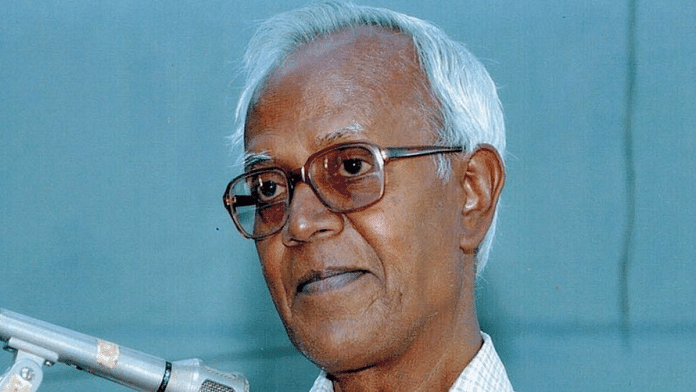
New Delhi: An American digital forensics firm has concluded that a hacker infiltrated activist-priest Father Stan Swamy’s computer and planted evidence, The Washington Post reported Tuesday.
The 84-year-old, Jharkhand-based Jesuit priest died in judicial custody in July last year, eight months after he was arrested for alleged links to the Bhima-Koregaon violence in January, 2018.
The case pertains to allegations that provocative speeches about caste were made at a 31 December, 2017 event in Pune that sparked clashes in parts of Maharashtra the following day.
The event, Elgar Parishad, was held to mark the 200th anniversary of the Battle of Bhima Koregaon where an army comprising Dalits, fought under the British flag, and defeated a much-larger force of the Brahmin Peshwas.
The Post reported Tuesday that Massachusetts-based digital forensics firm Arsenal Consulting examined an electronic copy of Swamy’s computer and found hacker activity.
Arsenal’s report said Swamy – who championed the rights of tribal youth – was the “target of an extensive malware campaign for nearly five years, the longest known for any defendant, right up until his device was seized by police in June 2019”.
“During that period, the hacker gained full access and had complete control over his computer, dropping dozens of files into a hidden folder without his knowledge,” the report added.
Arsenal conducted its work at the request of the group’s defence team, The Post said.
The findings by Arsenal “clear” Swamy’s name, his friend Father Joseph Xavier told The Post. He said the report proved that Swamy was “systematically targetted and framed for raising his voice for the (tribals), which hurt the interests of the state”.
The paper also reported that two experts on malware and digital forensics have certified Arsenal’s conclusions to be “sound”.
“Arsenal’s report is ‘really convincing’, and there is ‘firm evidence’ that Swamy’s computer was infected with malware and that an operator was pushing incriminating files to the system,” The Post quoted Robert Jan Mora, a digital forensics expert at Volexity, a cybersecurity firm based in Washington D.C., who reviewed the report.
The National Investigation Agency (NIA), which is the prosecutor in the case, had filed a chargesheet in October, 2020, naming Swamy along with other activists in the Bhima Koregaon case.
He was booked for alleged criminal conspiracy and sedition, and under the Unlawful Activities (Prevention) Act, among other charges.
Some of them were organising events for the banned CPI (Maoist), keeping in touch with all the accused in the Bhima-Koregaon case, and possessing Maoist propaganda.
Swamy denied ever visiting Bhima Koregaon, Pune, and rejected the allegations of Maoist links too.
In a message circulated ahead of his arrest, he had suggested his incarceration was related to his work, much of which had seen him fight government policies.
Swamy was arrested in October 2020, two years after the Bhima Koregaon violence, during which he had been questioned multiple times.
His arrest was widely criticised, with human rights group People’s Union for Civil Liberties (PUCL) condemning it as an “inhuman and insincere act of the NIA authorities”.
The priest breathed his last on 5 July, 2021 at a private hospital in Mumbai, where he was admitted in May following a Bombay High Court order. He was suffering from Parkinson’s and also Covid.
Also read: Priest, activist, ‘Naxal backer’ — who’s Stan Swamy, latest NIA arrest in Bhima Koregaon case

COMMENTS